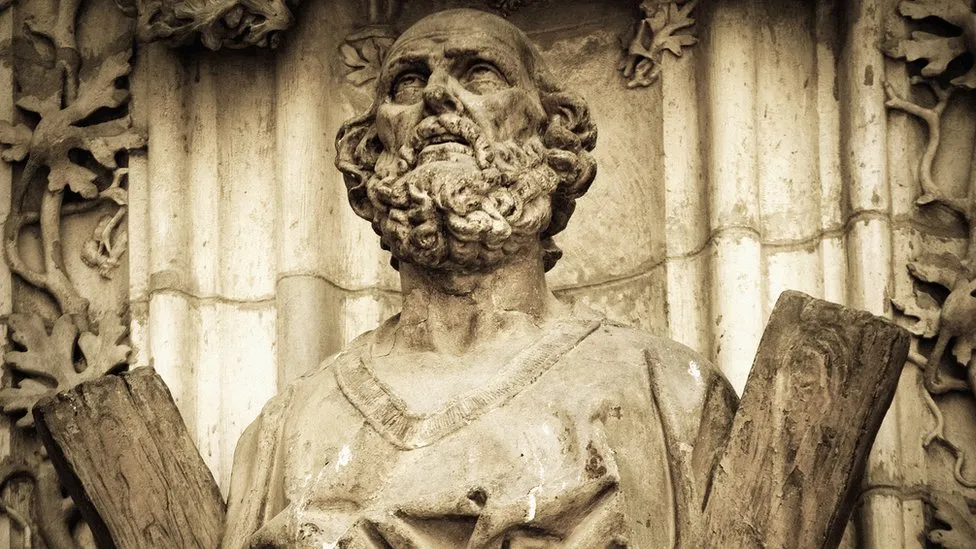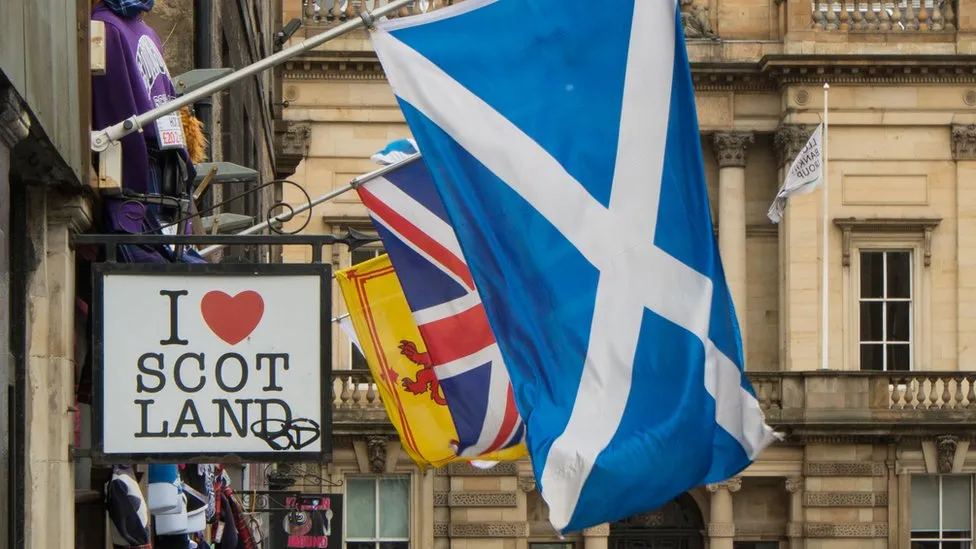St. Andrew’s Day: St. Andrew’s Day: when is it? Who was he? Why does Scotland celebrate him?
St. Andrew’s Day: The patron saint of Scotland and the celebration of his feast day
On 30 November, Scots gather to celebrate St Andrew’s Day, the patron saint of their country. This day is a celebration of Scottish culture, traditional food and music.

Patron saints are chosen as special protectors or guardians of all areas of life.
However, St Andrew is not only the patron saint of Scotland – he also holds this position in several other countries.
But who was St Andrew and why is he the patron saint of Scotland?
We don’t really know much about St Andrew. He is thought to have been born between 5 and 10 AD. According to Christianity, he was one of the 12 disciples of Jesus Christ. The disciples were 12 people whom Jesus chose to follow him closely. One of the disciples was Andrew’s brother Simon Peter. They both lived in Galilee, where they were fishermen.Strangely, St. Andrew never set foot in Scotland in his entire life!
Why is St. Andrew the patron saint of Scotland?
There is no clear answer to this question.One story says that in the 9th century, King Angus of Scotland was preparing for battle against the English.Saint Andrew appeared to King Angus in a dream and promised him victory.On the day of the battle, an X appeared in the sky, the symbol of Saint Andrew. He promised that if he won, St Andrew would become the patron saint of Scotland – and that’s exactly what happened.That’s why there’s a cross in the shape of the letter X on the Scottish flag, because it’s the symbol of St Andrew.Mythology says it goes back even further than that.
The story goes that the Scots are descended from an ancient population called the Skythians, who lived by the Black Sea and were converted to Christianity by St Andrew.
Saint Andrew was officially named patron saint of Scotland in 1320.
How do Scots celebrate St. Andrew’s Day?
Experience the magic of golf in the heart of Scotland on St. Andrew’s Day!
On 30 November, the gates of the famous St Andrews Golf House open to celebrate St Andrew’s Day, the patron saint of Scotland. Step into the world of the legendary R&A Golf Club and enjoy a unique day of history, tradition and fun.
Explore the majestic clubhouse where golf history was made. Walk in the footsteps of famous players and soak up the atmosphere of this special place. Sample delicious Scottish specialities and celebrate the country’s patron saint with real Scotch whisky.
Don’t miss this unique opportunity:
- Take a look around the R&A Golf Club’s historic clubhouse, which is not normally open to the public.
- Delve into the rich history of golf and explore the fascinating displays.
- Sample delicious Scottish specialities and enjoy a Scotch whisky.
- Pick up golf souvenirs and original memorabilia.
- Enjoy the unique St Andrew’s Day atmosphere in the heart of Scottish golf.
St Andrew’s Day at the R&A Golf Club is an unforgettable experience for all lovers of golf, history and Scottish tradition. Don’t miss this unique event!
Scots celebrate this day in different ways. People throw parties, play games, dance and frolic with lots of tasty food and drink. There are St. Andrew’s Day societies all over the world that commemorate this event in their countries.
Celebrations usually include a special type of party called a ceilidh – pronounced “kay-lee” – where Scottish country dancing is performed. However, traditional food may still be eaten, such as cullen skink – fish soup – or lamb.
People also eat Scottish foods such as haggis, porridge and black pudding. Blue clothes and kilts (knee-length wraparound skirts) are worn, and some people also paint blue or Scottish flags on their faces.
Cullen skink is a traditional Scottish fish soup made from smoked haddock.
St Andrew’s Day is an official holiday in Scotland. There is no law that stipulates time off school or work… Some schools close, others stay open. Although St Andrew’s Day is the day of their patron saint, most Scots are more likely to celebrate Burns Night (25 January) and Hogmanay (New Year).


